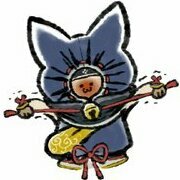Eh, Frosty covered this pretty well. Might just "/thread" right now.
I will say this, if I should be allowed to follow through...
The strict philosophy of "ain't broke, don't fix" I don't inherently adhere to either, but there are a few games that I honestly believe should not be "refined" too drastically lest we see something horrific. That's where I get with Zelda, my favorite video game series. There are changes, small and significant, but we've also reached a point where there's the phrase "for a Zelda game..." (or any other Nintendo game.)
Depending on how one speaks, it can have a negative or positive connotation. Something that can signify that it has become "typical" or "stale." However, you might also see it as how the franchise has sustained itself long enough to where it's a pseudo-genre of video games. With the topic of Nintendo game influences, such as Zelda to Darksiders, if Zelda didn't do what it typically did, there might not have been the same influence.
I'm not honestly sure how to correctly articulate this, especially after reading Frosty's posts, but when you look at Zelda, Mario, Kirby, or even Metroid, one does expect certain recurring elements. In Kirby 64: The Crystal Shards, it was awesome to have the ability to combine powers into new attacks, but Kirby still had to absorb enemies. Even having his friends help out was used before in Kirby's Dreamland 2. Same concept, but different execution. Now this isn't to say Kirby games like Canvas Curse and Epic Yarn were "bad." It's nice to explore a bit, just so long as you remember what's at the core of the franchise.
Now I'd like to talk about a certain game again.
Metroid: Other M... I mean, it's alright, but it's one of the furthest Metroid titles that illustrates what Metroid is aside from Metroid Prime Pinball on the Nintendo DS. Even basic attributes like enemies and navigation rooms were drastically altered from their defined characteristics. Enemies solely existed to cause damage and there were dozens of navigation rooms scattered about simply to heal Samus Aran along her linear escapade. In short, the foundation laid before previous games was shattered to create a "new" experience that didn't live up to the "Metroid" name. It's not like change is frowned upon in the Metroid universe, especially when you consider how well received the Prime series was and still is. Maybe that's because, for the most part, it merely added to the franchise without taking away anything that was defined as "Metroid."
I mean, a gamer might scoff at the idea Samus Aran loses her abilities nearly every game, but then you look at Metroid: Other M and see how ridiculous it is for her to hold back on using her abilities.
If I can drive home a point it would be that unlike most other video games, Nintendo games have (as I said before) a built foundation that essentially defines what they are. All you can really do is add onto them because when you begin to look backward, you're altering years of gaming progress. We don't have Roc's Cape anymore as Link can jump in his 3D realm, or even if you don't like the Hookshot, it has evolved over the last few games. It's not like just because an item might look the same or even have the same name that it will actually be the same.
Again, I'm not sure I'm even making sense, but games like Assassin's Creed or any other modern title may not have a lasting legacy. Assassin's Creed 2 made much more progress over the first game because, well, AC2 was the second game. Not to mention the first had some pretty big problems, so improving was pretty much required. Still, then you look at Brotherhood. It's not much different, just a little refined in some areas. Alright, great for the third game. Revelations isn't out yet, but so far we have the hook blade and bombs. Alright, a new item and game mechanic.
I dunno, isn't that what Zelda does too? Maybe if we gave Assassin's Creed 20 more years with a few more titles, we might be having the same discussion of "stale vs. formula." I'm probably going to get flak for the example, but what other games do I have to compare to Zelda? More Nintendo games? Oh, well, there are Sonic games. Those have been holding up, right? Constantly altering itself to find something that will satisfy a large enough audience. Now we're at "Sonic: Nostalgia." Not to knock the game down, but that is its number one selling point.
One last bit, as it just came to mind, Nintendo could be defined as "Hardware: Innovative, Software: Traditional." Not to say everything Nintendo has crafted in hardware has been amazing (oh Vitality Sensor), but in some sense it's good to have a company who wants a console to do more than "more graphics!" On the forum, there has been the discussion of where gaming will go aside from making objects "more round." If you ask me, if we didn't have Nintendo (at least) trying out wacky ideas, Sony and Microsoft would be comfortable with selling us graphics machines. Then the idea of "innovation" would be brought up last minute and then, if anything is going to be stale, it would be the industry.
EDIT: Oh, but Nintendo does need to get its "online" in order. I would be more comfortable with purchasing more VC titles if it wasn't so awfully basic.
Atomsk Tangents: Closed.




